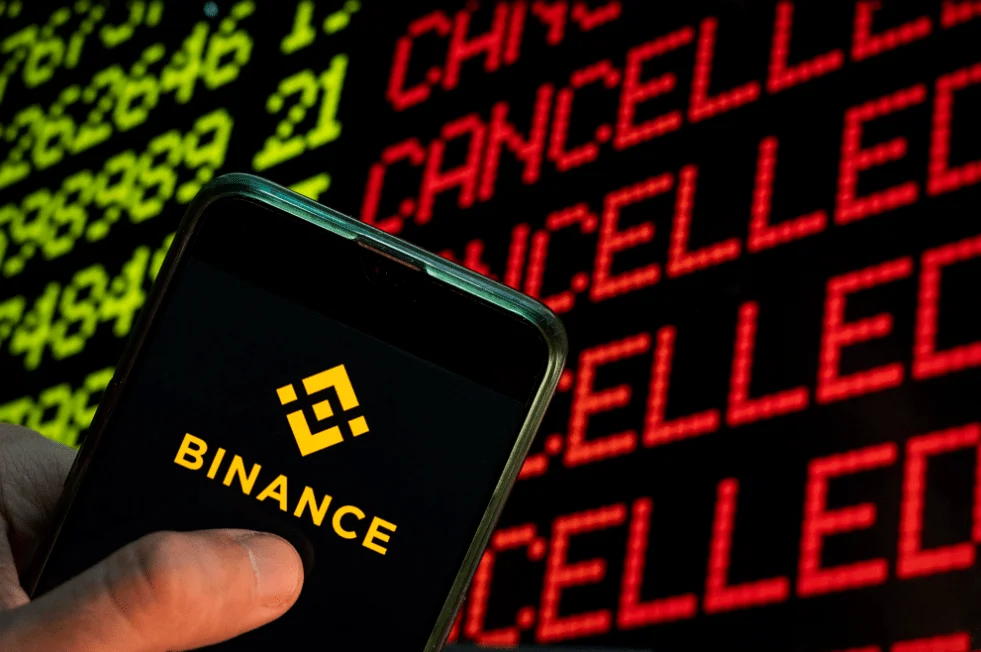Cryptocurrency exchanges have been under intense scrutiny from regulators in Japan, the United Kingdom, and Ontario, Canada. Binance has been identified as a target.

Binance, the world’s largest cryptocurrency trading platform, has been rocked by legislative developments in the last week, as governments cracked down on the use of unlicensed exchanges and advised citizens against using them.
Binance’s decision to call itself a “global exchange” has done little to placate regulators who require specialized licenses to provide financial services to their citizens.
The following is a quick rundown of recent regulatory actions involving Binance;
Japan
On June 25, the Financial Services Agency of Japan, or FSA, accused Binance of operating without legal authorization in the country, potentially setting the groundwork for a protracted legal battle with regulators.
Because, unlike other countries, Japan has established precise registration and operating laws for BTC exchanges from at least 2018. Binance opted to relocate its operations to Malta in 2018 rather than comply with the directives.
The FSA’s warning doesn’t just apply to Binance. In May of this year, the regulator issued a warning to Bybit, a derivatives exchange, for violating registration rules.
Ontario (Canada)
Binance declared it would discontinue all operations in the Canadian province of Ontario around the same time as the FSA of Japan issued its warning, after the provincial securities regulator proposed sweeping new rules targeting cryptocurrency exchanges.
The Ontario Securities Commission (OSC) announced new prospectus and registration requirements for cryptocurrency exchanges on April 19. Using that as a yardstick, the OSC singled out two cryptocurrency exchanges, Bybit and Kucoin, for allegedly “flouting” Canadian securities regulations. Binance decided to depart the market totally rather than comply with the new regulations, giving users until the end of the year to liquidate and delete their accounts.
United Kingdom
Binance declared it would discontinue all operations in the Canadian province of Ontario around the same time as the FSA of Japan issued its warning, after the provincial securities regulator proposed sweeping new rules targeting cryptocurrency exchanges.
The Ontario Securities Commission (OSC) announced new prospectus and registration requirements for cryptocurrency exchanges on April 19. Using that as a yardstick, the OSC singled out two cryptocurrency exchanges, Bybit and Kucoin, for allegedly “flouting” Canadian securities regulations.
Binance decided to depart the market totally rather than comply with the new regulations, giving users until the end of the year to liquidate and delete their accounts. We’ve heard that the Financial Conduct Authority of the United Kingdom (FCA UK) has issued a notice in respect to Binance Markets Limited (BML).
BML is a separate legal entity and does not offer any products or services via the https://t.co/QILSkzx7ac website. (1/4)
— Binance (@binance) June 27, 2021However, from June 30, Binance will be required to notify UK customers of the FCA’s restrictions on its website and mobile apps.
Germany
Binance was warned by Germany’s Financial Supervisory Authority, or BaFin, in April that issuing security-tracking tokens without an investor prospectus might result in a punishment of up to $6 million, or 5 million euros.
BaFin voiced concerns about digital tokens that track blue-chip equities like Microsoft, Apple, and Tesla, in particular.
Binance told the regulator that its digital stock tokens are not securities because they are purchased through a third-party broker and cannot be transferred to other exchanges, according to the Financial Times.
United States
Binance has a designated trading desk in the United States named Binance.US, but it has also been under scrutiny in recent months.
Binance is being investigated by the Justice Department and the Internal Revenue Service in a joint money-laundering and tax-evasion examination, according to Bloomberg.
Binance’s CEO, Changpeng Zhao, disputed the report’s headline by pointing out that Binance collaborated with US law enforcement agencies to “combat bad players.”
The “news” title is bad. Article itself isn’t so bad actually (but who reads). It described how @binance collaborated with law enforcement agencies to fight bad players, but somehow made it look like a bad thing… Anyways. Back to work.
— CZ Binance (@cz_binance) May 13, 2021
